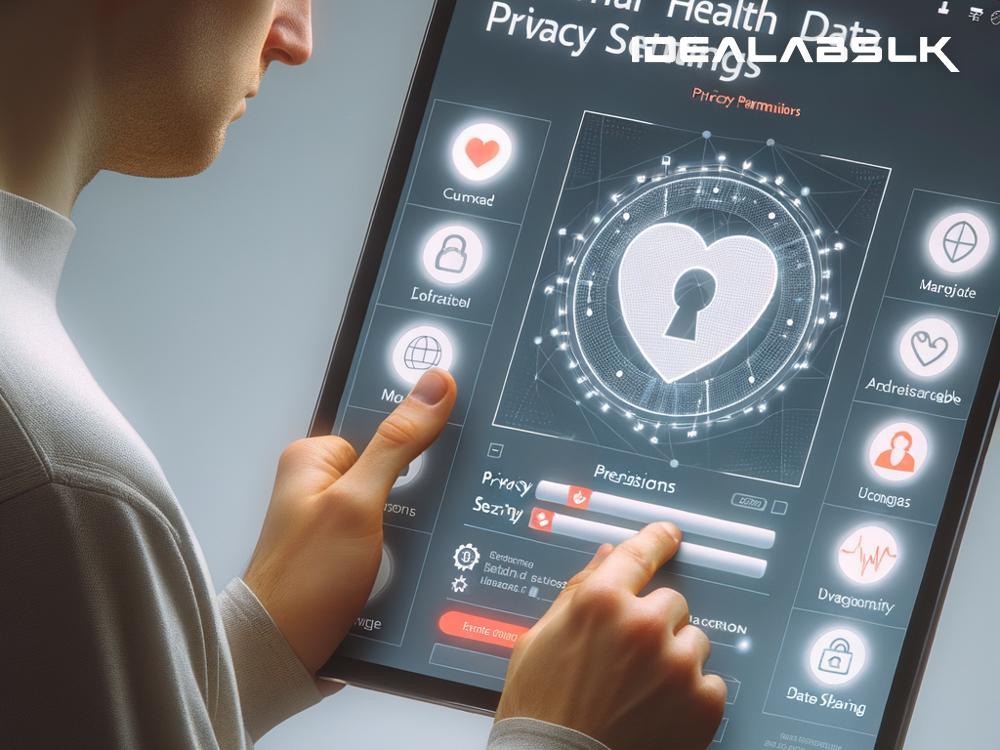The Ethics of User Data in Digital Health Applications
In our tech-savvy world, smartphones aren't just for calls or messages; they've become health assistants right in our pockets. From tracking our steps to reminding us to drink water, digital health applications (apps) have redefined the way we approach wellness and healthcare. Nonetheless, with great power comes great responsibility — specifically, the moral duty to handle user data ethically. Let's unpack the ethics of user data in these digital health applications, breaking down why it's crucial and how it impacts you.
What’s the Big Deal About Your Data?
Imagine your health data as intimate diary entries. Just as you wouldn’t want your private thoughts exposed to the world, your health information — from the number of steps you take to your heart rate and even your medication schedule — is deeply personal. When you use a health app, you’re trusting the developers with this sensitive information. The ethical handling of this data, therefore, isn't just a nice-to-have; it’s a must.
The Risks of Mishandling Data
When health apps drop the ball on data privacy, the consequences can range from mildly annoying to downright dangerous. At the less severe end, your data could be used to bombard you with targeted ads. More worryingly, if your data falls into the wrong hands, it could lead to identity theft or even health insurance discrimination.
A Matter of Consent
One of the pillars of data ethics is informed consent. This means that an app should clearly inform you what data it's collecting, why it’s collecting it, and who has access to it. More importantly, it should seek your permission before doing so. However, simply burying these details in lengthy terms and conditions won’t cut it. The information should be presented in a straightforward, understandable way, empowering you to make informed decisions about your data.
The Role of Anonymization
A common practice to protect your privacy is anonymizing your data. This means stripping away any personal identifiers (like your name or exact location) so that the data can’t be traced back to you. While this is a step in the right direction, it’s not foolproof. Advanced technologies can, in some cases, re-identify anonymized data. Hence, while anonymization is valuable, it’s not a one-size-fits-all solution.
Transparency as a Policy
Transparency is fundamental in ethical data handling. Health apps should not only be upfront about their data practices but should also be easily accessible for any queries or concerns you might have. Knowing how your data is managed fosters trust and reassures you that your information is in safe hands.
Empowerment Through Control
Imagine moving to a new health app but wanting to take your data with you. Ethical data practices mean you can easily do this without jumping through hoops. Essentially, you should have control over your data, including the ability to access, transfer, or even delete it. This level of control is not just empowering; it’s your right.
Safeguarding Your Data
Protection against unauthorized access is another cornerstone of ethical data management. This involves using robust security measures, such as encryption, to ensure your data stays private. Remember, the strongest privacy policies are worthless if the technical safeguards aren’t in place to back them up.
The Bottom Line
As digital health applications continue to evolve, the ethical management of user data becomes increasingly complex and vital. It’s not just about legal compliance; it’s about respecting and protecting the individuals behind the data.
For developers, this means designing apps with privacy in mind from the get-go, being transparent about data practices, and giving users control over their information. For users, it's about being informed and vigilant, understanding your rights, and making choices that align with your privacy expectations.
Health is a deeply personal aspect of our lives, and as we navigate through the sea of digital health applications, let’s not forget the importance of safeguarding our most sensitive information. After all, in the realm of health and wellness, trust and privacy are not just features — they're foundations.

